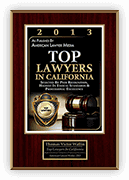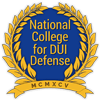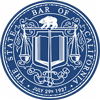Typically, the first witness for the prosecution in a California drunk-driving case is the arresting officer. While the officer’s testimony can undoubtedly have a strong impact on the defense’s case, it does not mean that all is lost. The arresting officer usually begins by testifying to the driving pattern of the California DUI suspect prior to the stop. This is where the officer attempts to establish “probable cause” for the stop. The officer may state that the CA DUI defendant was weaving between lanes, perhaps only briefly encroaching into the neighboring lane, or that the DUI defendant was driving without headlights. It is important to note that California courts have ruled that such occurrences do not always justify “probable cause” for a DUI traffic stop. For instance, if it can be established that the DUI defendant was on his or her cell phone, resulting in the weaving, then the court may actually rule that the officer did not have probable cause for the stop and, therefore, the case ends in a dismissal.
The next thing that an arresting officer will generally testify to is how the California DUI defendant acted during the stop. The officer may state that the defendant fumbled for his or her wallet, had trouble locating registration or driver’s license, and/or that the defendant stumbled and almost fell down when asked to get out of the car. While these things may first appear bad for the defense and indicate intoxication, a skilled California DUI attorney will know how to show that even a sober person may do the same things. Oftentimes, when testifying to why the arresting officer believed that defendants were intoxicated, the officer will state that he or she “smelled a strong odor of alcohol.” An experienced California DUI Defense lawyer can often make such testimony appear foolish during cross-examination by getting the officer to admit that alcohol (ethanol) itself has no odor. The fact is that “alcohol odor” actually stems from the mixing agent.
If a DUI defendant submitted to field sobriety testing, the officer’s training and experience in administering such tests will be discussed. This is a critical subject in testimony and one that the California DUI defense attorney should carefully examine. If it can be determined that the officer who administered the tests was not properly trained, then such testimony may be excluded at trial. Following any such testimony, the officer will generally testify to any results from breath or chemical tests that were performed. The officer will be asked either by the prosecution or during cross-examination to explain the procedures regarding chemical testing. The California Code of Regulations Title 17 outlines specific procedures that must be adhered to when administering DUI breath or blood alcohol-content tests. Again, California DUI lawyers should carefully examine whether or not these procedures were followed. Failure to follow these procedures can sometimes lead to a skilled California DUI attorney’s getting such evidence suppressed.










